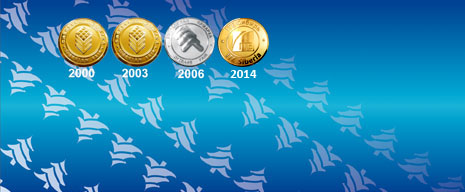 |
 |
No. 3 (2024)
Conceptual Ideas of Russian Pedagogy of the Late 19th and early 20 centuries and their Application in the Modern Educational Process
This article focuses on the main problem of education the essence of which lies in between two opposing trends of the world development: on the one hand, mobility, on the other, the need for high-quality human education. An analysis of the ideas of teachers of the 19th century will allow us to choose the most correct educational policy strategy.
Modern Challenges of Higher Education in Russia
Purpose of the study is to consider the causes of the challenges facing Russian higher education. Procedure and methods. The work was carried out on the basis of a systematic approach using methods of classification and comparative analysis. Results.
Continuing Learning Integration and its Impact on School Headmaster Professional Development
The rapid development of technology has brought into our lives not only new opportunities, but also a constant updating of life and professional experience. The modern educational environment of adults is becoming a complex mobile system that must respond to the demand for new ways of learning as tools for the continuous development of professional competencies of a specialist. Meanwhile, each type of education has its own specifics and peculiarities, and is not always able to respond to a request.
Online Marathons as an Effective Approach to Organizing Corporate Training for Teachers
The article presents the problem of corporate training. The relevance of the research is thanks to the search for new forms of corporate training organization. The purpose of the article is to study the problem of organizing corporate teacher training. The aim of the research is to evaluate the possibilities of microeducation — namely online marathons — for conducting corporate teacher training.
Intellectual Resources as a Component of Foreign Language Communicative Competence of Students In Non-Linguistic Higher Education Institution
The relevance of the study is determined by the significance of the intellectual resources being necessary for the formation of students’ communicative skills in order to increase the level of their foreign language communicative competence in the process of teaching a foreign language in non-linguistic higher education institutions.
Educational Environment as a Condition for the Self-Organization of Military Specialist Competence
Modernization of modern higher education in general and military education, in particular, is largely associated with the transformation of Russian society, with its socio-economic changes and complex geopolitical situation, requiring, first of all, military specialists of high quality, capable of making quick decisions in a situation of sharply changing operational environment.
Digital Tools for the Formation of General Professional Competencies of Students in Technical and Economic Specialties at a University
The article examines the competence-based approach in the aspect of new requirements to the federal educational standards of higher education at the level of basic higher education. The necessity of using digital tools for the formation of general professional, including engineering, graduate competencies to achieve the goals of basic higher education is substantiated. The subject of the study is the invariant of general professional competencies. The object of the study is the classification of digital tools according to various criteria in higher education.
Philosophy of Education and Theory of Communicative Action of J. Habermas
The purpose of the article is to generalize the experience of philosophical and pedagogical interpretation of the theoretical constructs of J. Habermas and to determine further prospects for their analysis in the context of constructing a fundamental theory of education. It is argued that to date, a certain tradition has developed in the philosophy of education of using Habermas’ theoretical constructs to solve philosophical and pedagogical problems.
Students in the Application of Immersive Technologies When Conducting Volunteer Events in the Field of Road Safety
Forming the skills of schoolchildren and students in the use of immersive technologies when conducting volunteer events in the field of road safety is one of the goals in the system of additional education of the Russian Federation. There is no data in the literature on master classes conducted to develop the skills of volunteer groups of schoolchildren and students when they implement productive projects using immersive technologies aimed at developing skills for safe behavior of children on the roads.
The Realization of A. S. Makarenko’s Pedagogical Technology: the Table of Differences Between the Emerging and Mature Team in the System of Collective Education
In the context of the crisis of the liberal model of education and upbringing in Russia, A. S. Makarenko’s ideas about education based on Russian culture are gaining a new reading and can be used at the present stage. The collective education of an innovative teacher in the Gorky colony, understood as a subsystem of Soviet society, needs to be analyzed from the point of view of society and systematized elements, moreover in a holistic and visual form. In this article, based on the study of the writings of A. S.
Сайт поддерживается в Новосибирском институте повышения квалификации и переподготовки работников образования и является участником Новосибирской открытой образовательной сети